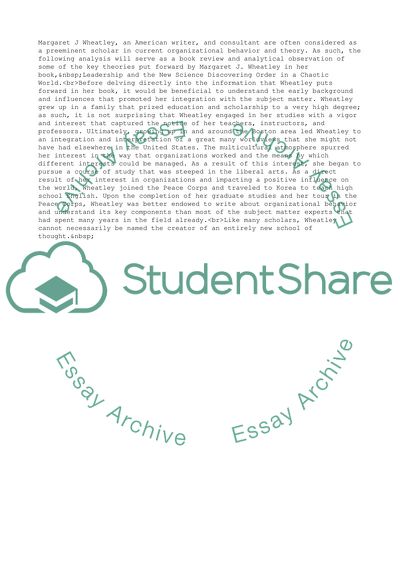Cite this document
(Leadership and the New Science Discovering Order in a Chaotic World Book Report/Review - 1, n.d.)
Leadership and the New Science Discovering Order in a Chaotic World Book Report/Review - 1. Retrieved from https://studentshare.org/business/1802740-major-contributions-philosopher-margaret-wheatly
Leadership and the New Science Discovering Order in a Chaotic World Book Report/Review - 1. Retrieved from https://studentshare.org/business/1802740-major-contributions-philosopher-margaret-wheatly
(Leadership and the New Science Discovering Order in a Chaotic World Book Report/Review - 1)
Leadership and the New Science Discovering Order in a Chaotic World Book Report/Review - 1. https://studentshare.org/business/1802740-major-contributions-philosopher-margaret-wheatly.
Leadership and the New Science Discovering Order in a Chaotic World Book Report/Review - 1. https://studentshare.org/business/1802740-major-contributions-philosopher-margaret-wheatly.
“Leadership and the New Science Discovering Order in a Chaotic World Book Report/Review - 1”, n.d. https://studentshare.org/business/1802740-major-contributions-philosopher-margaret-wheatly.


